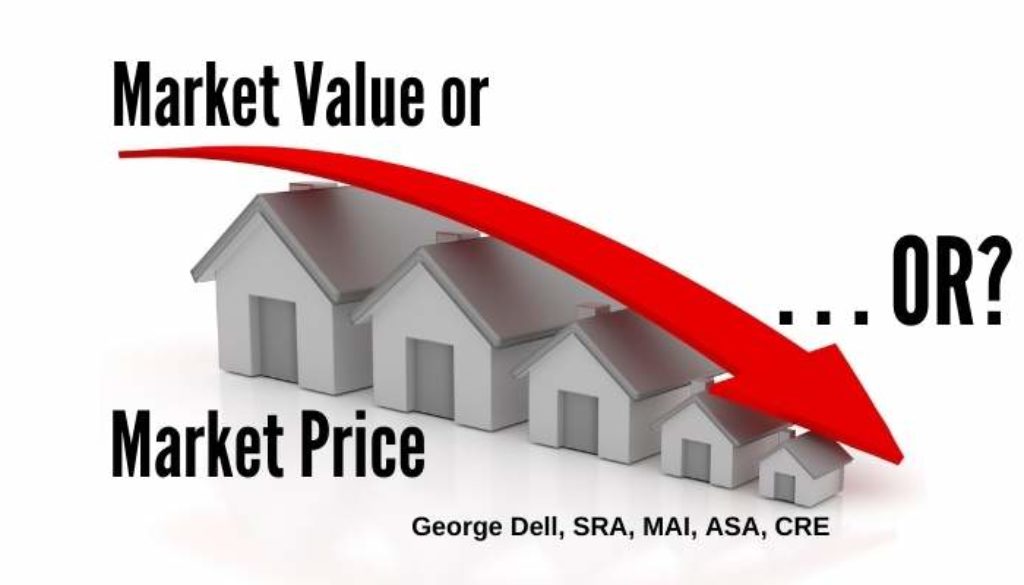Market value for home loans in the United States is precisely defined.
The understanding of “market value” is the single most important concept defining what appraisers do.
Buyer/seller are prudent, knowledgeable, well informed or advised, and ‘typically’ motivated; there is no ‘undue’ stimulus; and the sale is in cash terms, with normal exposure, and “unaffected by special or creative financing or sales concessions”.
Market price is simpler. It’s the price at which a transaction occurs.
Is market price the same as market value? In theory, the two will be the same, but only if the ‘market’ is working properly.
So how could these two numbers possibly differ? Either the theory is wrong, or one of the assumptions is not true. It clearly says: “Market value means the most probable price” as explained in the explanatory guidance Advisory Opinion 22.
I started out this blog intending to look briefly at all seven basic assumptions. It got unwieldy, and I realized each assumption has several ramifications and even deeper underlying assumptions. So, let’s look at the preliminary paragraph first:
“Market value means the most probable price which a property should bring in a competitive and open market under all conditions requisite to a fair sale, the buyer and seller each acting prudently and knowledgeably, and assuming the price is not affected by undue stimulus. Implicit in this definition are the consummation of a sale as of a specified date and the passing of title from seller to buyer under conditions …”
We look at each of these underlined words critically:
- “should bring” — This implies that it is possible to determine what price should have happened, instead of what price actually happens. While this is easy to explain for the subject of an appraisal, it seems to imply that the actual applied sale prices of comparables should not be used. Rather the most probable price the comparable should have brought should be used in an analysis!
- “conditions requisite to a fair sale” – The only definition of fair sale was found in the USLEGAL Dictionary. I was unable to find anything regarding the conditions required for a fair sale.
Fair sale is a foreclosure sale or other judicial sale conducted respecting the rights and interests of the affected parties. A fair sale is conducted with fairness and impartiality.
A fair sale means that buyer and seller are each acting prudently, knowingly, and under no necessity to buy or sell, i.e., other than a forced or liquidation sale . [First American Bank v. Monica Rd. Assoc., 147 B.R. 385, 387 (Bankr. D. Va. 1992)]
- “Consummation of a sale … and the passing of title” are “implicit in this definition.” This is clear that the price evidence must include a meeting of the minds, AND an actual transfer.
This a fairly rigorous requirement, which seems to preclude the use of offers to buy or sell (listings) in understanding what is the value. It also drives home that the exchange price is the determining factor, not fundamental, intrinsic, ‘sustainable’, or social value in use as a home or investment.

May 5, 2021 @ 6:05 am
Good recap George! I recommended it to a trainee appraiser.